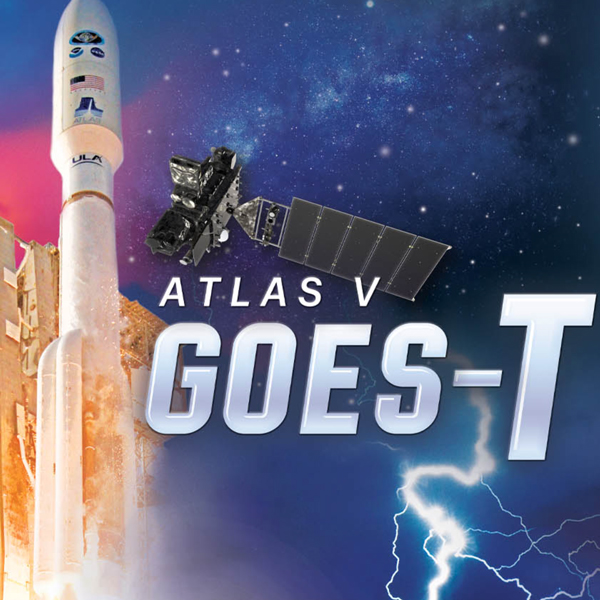WATCH: ULA Atlas V Rocket Launches from Cape Canaveral Carrying NOAA’s Weather Spacecraft
By Space Coast Daily // March 1, 2022
launch is targeted for 4:38 p.m. EST
ABOVE VIDEO: The Atlas V rocket will launch NOAA’s Geostationary Operational Environmental Satellite (GOES)-T weather spacecraft for NASA’s Launch Services Program this Tuesday, March 1 at 4:38 p.m. EST (2138 UTC).
 BREVARD COUNTY • CAPE CANAVERAL, FLORIDA – The Atlas V rocket will launch NOAA’s Geostationary Operational Environmental Satellite (GOES)-T weather spacecraft for NASA’s Launch Services Program this Tuesday, March 1 at 4:38 p.m. EST (2138 UTC).
BREVARD COUNTY • CAPE CANAVERAL, FLORIDA – The Atlas V rocket will launch NOAA’s Geostationary Operational Environmental Satellite (GOES)-T weather spacecraft for NASA’s Launch Services Program this Tuesday, March 1 at 4:38 p.m. EST (2138 UTC).
Liftoff will occur from Space Launch Complex-41 at Cape Canaveral Space Force Station in Florida.
The latest weather report by the 45th Weather Squadron shows conditions will 70-percent favorable with the primary concern being heavy clouds in the area near launch.
A United Launch Alliance (ULA) Atlas V 541 rocket will deliver the National Oceanic and Atmospheric Administration (NOAA) GOES-T spacecraft to an optimized geosynchronous transfer orbit.
The optimized orbit places GOES-T closer to its final destination thereby conserving the satellite’s fuel supply for a longer mission life.
The mission is conducted in collaboration with NASA.
GOES-T will provide NASA and NOAA with continuous imagery and atmospheric measurements of Earth’s Western Hemisphere, lightning detection and mapping, solar imaging and space weather monitoring.
This is the third satellite in NOAA’s GOES-R Series, and will continue the revolutionary improvements brought by GOES-R and GOES-S, also launched on ULA’s Atlas V rocket.

NOAA manages the GOES-R Series program through an integrated NOAA-NASA office, administering the ground system contract, operating the satellites, and distributing their data to users worldwide.
NASA’s Goddard Space Flight Center oversees the acquisition of the GOES-R spacecraft and instruments with NASA’s Launch Services Program at Kennedy Space Center manages the launches.
Lockheed Martin designs, produces and tests the GOES-R series satellites. L3Harris Technologies provides the main instrument payload, the Advanced Baseline Imager, along with the ground system, which includes the antenna system for data reception.












